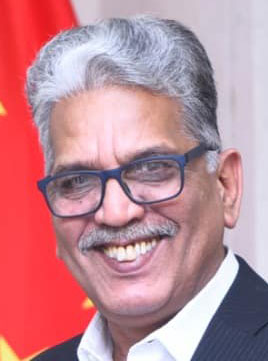One in eight people globally are in some way struggling with mental health challenges, that effects the physical health and wellbeing of individuals and overall impacts the productive efficiency of working society. World Health Organisation (WHO) has marked October 10th as World Mental Health Day (WMHD) to highlight the challenges and raise awareness of mental health issues that impact the global health and provide an opportunity to all the stakeholders to share their challenges and strategies to support mental health care.
The theme suggested this year by WHO i.e. “Mental health is a universal human right” is devised to highlight the importance, improve knowledge, raise awareness and work on conclusive and collective action to address the issue.
Mental health is a state of mental wellbeing that enables people to cope with the stresses of life, realise their true potential and abilities in learning and contributing towards their society.
As defined by the experts, there are three basic disorders that effect mental health of an individual. First and the most common is the anxiety disorder while the second is the mood disorder which is normally triggered by depression, bipolarity or Seasonal Affective Disorder; which is normally caused by change of weather e.g. fall / winter. The third and the most concerning disorder is schizophrenia; where an individual experiences complex psychotic behaviours and severe symptoms.
Mental health affects the emotional, psychological and social well being of an individual regardless of age, sex or ethnicity. Be it men, women or children; everyone is prone to hazards of mental health depending on various circumstances. Like for example, mental health issues in children are usually due to child abuse (physical or emotional), parental loss or marital separation, parental illness or social status of a family.
Teenagers today are also under immense pressure and face their own mental health challenges due to parental pressures, peer pressure, academic pressures and uncertainty in the continuous evolving world they’re stepping into.
Men face mental health challenges generally due to excessive work load pressure and the societal pressure which expects them to be the providers of their family. Genetically they are less expressive in dealing with their emotions which affects their mental health. According to statistics issued by Centre for Disease Control, USA, 5.5 percent adult males suffer from depression and Obsessive-Compulsive Disorder but are hesitant in admitting to their condition and/or seeking help.
Talking about women, some of the earliest records of mental health issues date back to 1900 BC when Egyptians attributed their depression and anxiety to Spontaneous Uterus Movements. The cure to these “wandering wombs” was to inhale pungent smell to bring the uterus to its natural position. This mindless blaming of the uterus continued till the 16th Century. Stereotyping the misinformation as hysteria was also attributed to mental disorders in women (hysteria: literally means ‘uterus’ in Greek). Later, until 18th Century, hysterical women were identified as witches specially in Europe and North America due to which 40,000-50,000 women were executed for witchcraft within a span of few hundred years.
Access to information in the modern world today has opened new horizons for awareness regarding mental health among individuals and especially women are in a better position now than they were a few decades back to identify and differentiate between chronic depression and non-chronic depression. Non-chronic depression mainly includes the Pre-Menstrual Syndrome (PMS), menopause and postpartum depression.
In recent times, COVID has also left physical and mental scars on almost everyone across the globe; adding to the social and financial stresses which led to depression and anxiety effecting mental health. Biological factors such as genetic family history or brain chemistry also play a role in mental health and wellbeing.
Symptoms of mental health disorders can lead to eating and sleeping disorders, low energy levels & physical fatigue, dependence on stimulants like alchohol, nicotine and drugs, emotional outbursts, loss of interest and focus in performing routine chores and thought of inflicting self-harm. The earlier one identifies and accept their condition, better are the chances of seeking help and recovering.
Mental health affects quality of life, relationships and physical health. While historical attitudes and perceptions regarding mental health, especially in women, persist even today. Mental health is considered the least likely cause for behavioral outburst and/or declining physical health. We may have overcome the concept of hysteria but still shy away from mental vulnerabilities and admitting to seek treatment. A strength of a person lies not in turning a blind eye towards their vulnerability but in identifying the cause and to make an effort in seeking treatment. Better and nourished mental health makes clear headed strong individuals that eventually contribute to making a stable and saner society.
Regardless of the gender, nationality, or religion, mental health is a fundamental human right. Every individual must have access to knowledge and support to identify, accept and address the mental health challenges to lead a healthy and purposeful life. A healthy individual is a guarantee for a healthy society and therefore, a healthy nation.
Prioritising mental health




